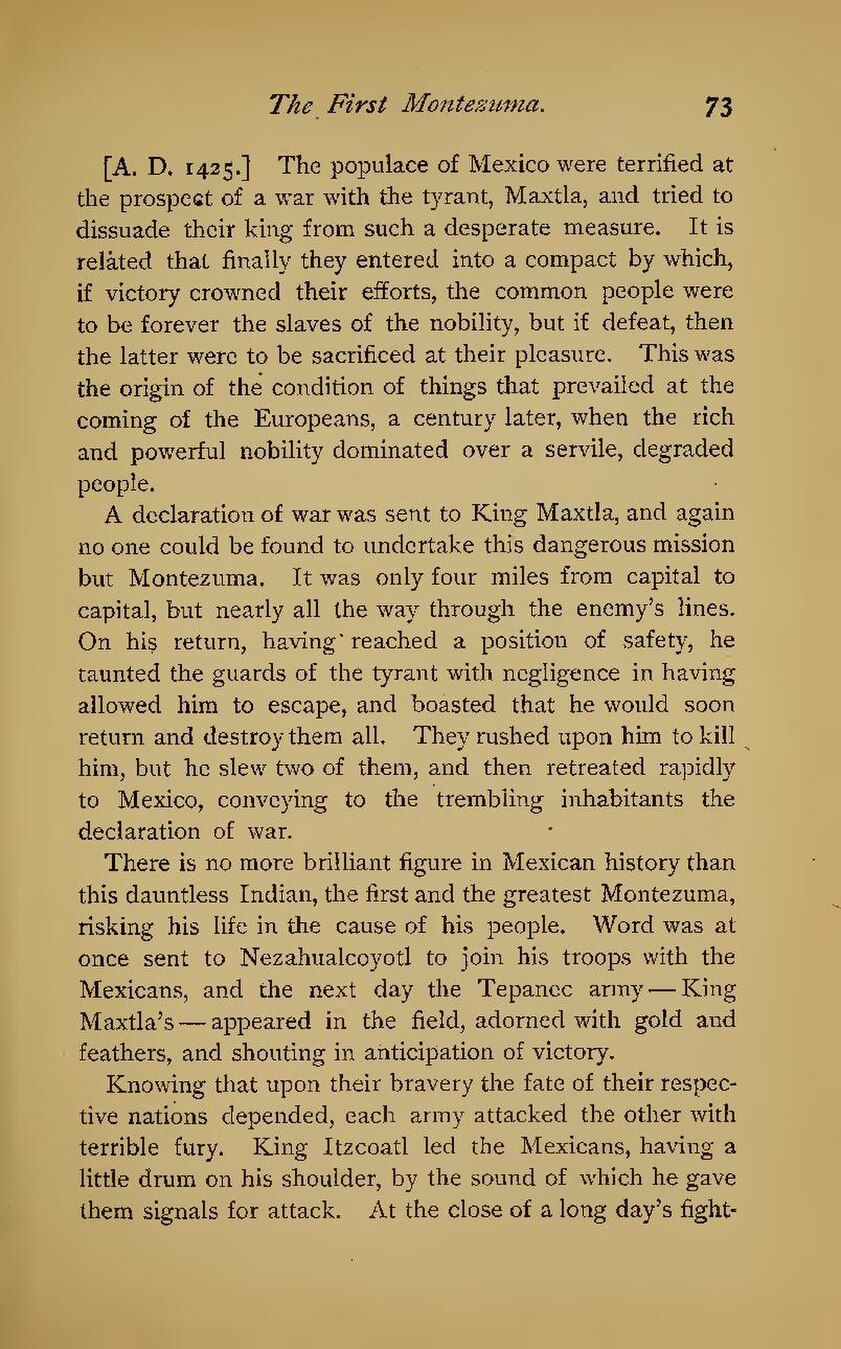[A. D. 1425.] The populace of Mexico were terrified at the prospect of a war with the tyrant, Maxtla, and tried to dissuade their king from such a desperate measure. It is related that finally they entered into a compact by which, if victory crowned their efforts, the common people were to be forever the slaves of the nobility, but if defeat, then the latter were to be sacrificed at their pleasure. This was the origin of the condition of things that prevailed at the coming of the Europeans, a century later, when the rich and powerful nobility dominated over a servile, degraded people.
A declaration of war was sent to King Maxtla, and again no one could be found to undertake this dangerous mission but Montezuma. It was only four miles from capital to capital, but nearly all the way through the enemy's lines. On his return, having' reached a position of safety, he taunted the guards of the tyrant with negligence in having allowed him to escape, and boasted that he would soon return and destroy them all. They rushed upon him to kill him, but he slew two of them, and then retreated rapidly to Mexico, conveying to the trembling inhabitants the declaration of war.
There is no more brilliant figure in Mexican history than this dauntless Indian, the first and the greatest Montezuma, risking his life in the cause of his people. Word was at once sent to Nezahualcoyotl to join his troops with the Mexicans, and the next day the Tepanec army—King Maxtla's—appeared in the field, adorned with gold and feathers, and shouting in anticipation of victory.
Knowing that upon their bravery the fate of their respective nations depended, each army attacked the other with terrible fury. King Itzcoatl led the Mexicans, having a little drum on his shoulder, by the sound of which he gave them signals for attack. At the close of a long day's fight-
